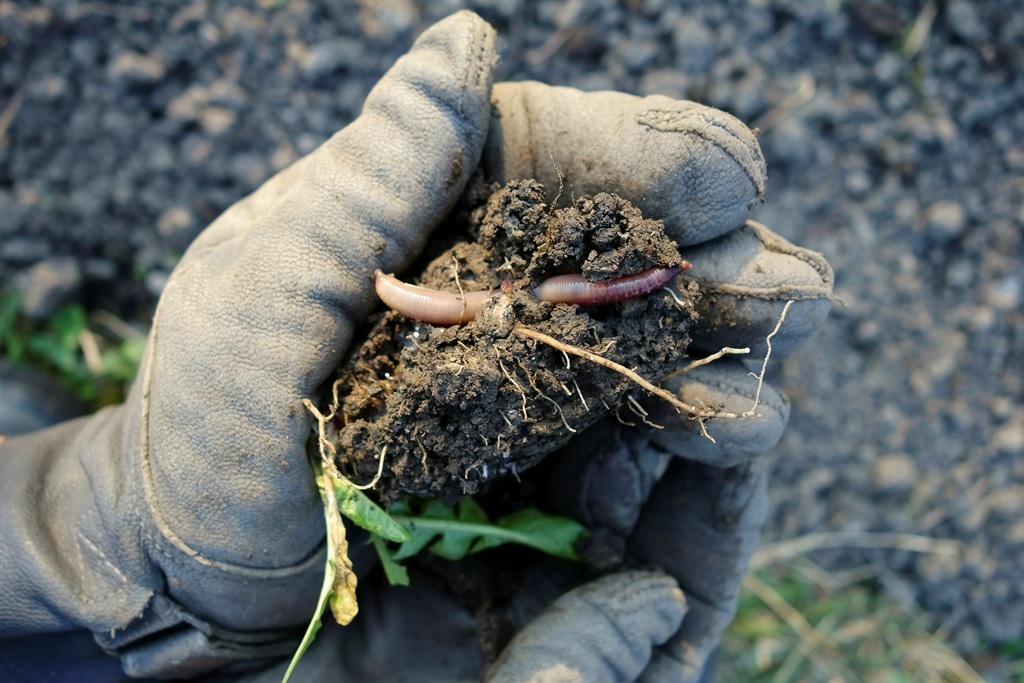
- Earthworms may be to thank for more than 6% of annual global grain yields, scientists found.
- Earthworms help break down plant material that releases nutrients and tunnel in soil, which helps root growth.
- They also help plants protect themselves against common soil pathogens.
- For climate change news and analysis, go to News24 Climate Future.
Most gardeners know that earthworms help keep soils healthy, now scientists have assessed just how important their underground activities are to global food production — and how to protect them.
In research published Tuesday scientists found that earthworms may be to thank for more than 6% of global grain yields every year, because of their crucial role in soil ecosystems.
Worms help to decompose dead plant material, releasing nutrients plants need to grow, and their tunnelling helps plant root growth among other benefits.
Evidence suggests they also help plants protect themselves against common soil pathogens by stimulating their defences.
But they are threatened by today's intensive and chemical-heavy agricultural techniques, scientists say.
Researchers writing in the journal Nature Communications analysed maps of earthworm populations, soil properties, crop yields and previous studies of plant productivity to estimate the creature's impact on the global production of key crops.
"Contribution" was defined as the percentage of the yield made possible thanks to earthworms.
READ | Australia says cost of climate, disasters surging
They found earthworms may contribute to around 6.5% of the world's annual grain production, which includes dietary staples such as wheat, rice, maize and barley.
"Their contribution may even be larger," said Steven Fonte, an associate professor at Colorado State University in the United States who co-authored the study.
This is because earthworm populations "are likely underestimated in many places, especially in the tropics, due to a lack of research and funding in the global south", he told AFP.
Earthworms also contributed to 2.3% of global production of legumes, foods that include peas, lentils, chickpeas, soybeans and alfalfa.
The annual total amounted to more than 140 million metric tons, the study estimated.
Conservation call
The authors said their findings represent one of the first attempts to quantify the contribution of a beneficial soil organism to global agricultural production.
They acknowledged a strong sampling bias when estimating earthworm populations because most of the data points were available in Europe and North America.
Even so, they found that earthworm contribution is especially high in the global south, contributing about 10% of total grain production in sub-Saharan Africa and roughly eight percent in Latin America and the Caribbean, the researchers found.
They attributed this to soils there generally having higher acid and clay content and being less exposed to fertiliser, increasing the role earthworms play in plant growth.
In Europe and East/Southeast Asia, more than seven percent of grain production was attributed to their activity thanks to their higher population levels and soil acidity.
Smaller earthworm populations, more widespread use of inorganic fertiliser and other soil properties were likely to have lessened their impact in other regions.
Agricultural and environment policies should support earthworm populations and soil biodiversity to help make the sector become more sustainable, the scientists suggested.
Measures could include reducing tillage, cutting the use of toxic pesticides, and increasing the application of worm food sources like manure and compost, said Fonte.
"Soils are estimated to contain approximately half of all biodiversity on the planet and are incredibly important for biodiversity conservation efforts," he said.




 Publications
Publications
 Partners
Partners












